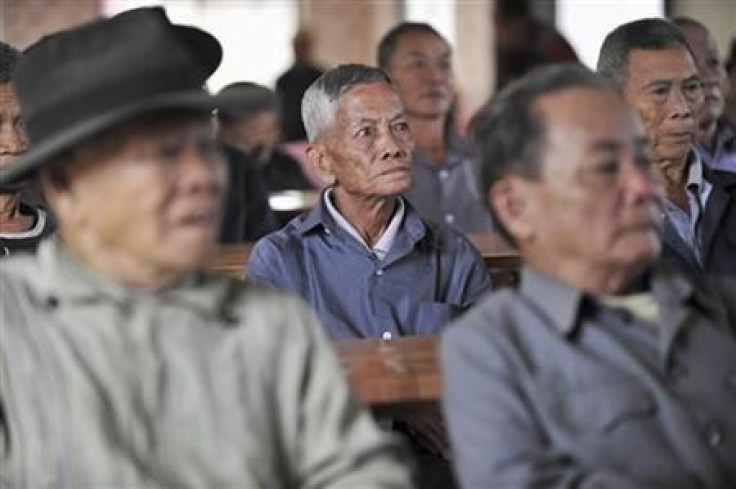China's Viral Video Campaign: Getting Back To Traditional Values [VIDEO]

A carjacking-turned-tragedy that ended in the death of a two-month-old infant has had much of China soul-searching and reflecting on the changing social values of a rapidly changing nation.
The sad event had many on China’s microblogging platform, Weibo, searching for answers as to where the nation’s traditional values, which place the utmost importance on family, had gone.
It seems that China’s government had taken notice of the shifting morals even before last week's incident, and released a series of public service spots on state-run television channels to help remind people of filial piety and familial values.
The videos have gone viral on the web in China, and are particularly good at tugging at the heartstrings of the many Chinese who leave home to pursue money-making careers in big cities or even overseas. Many of the videos released during the Lunar New Year holiday revolved around the slogan "All of China, going back home.” The message encouraged those who were considering not traveling back home for the holiday, because of the rising cost of travel or gifts, to put the effort in to see one's family and celebrate with them.
The videos hit close to home for many bloggers. “Today everyone on the web is crying,” wrote one Weibo user. Another called the videos “like tear gas” because of the uncontrollable reaction that was triggered.
The videos are all in Chinese, but with such a focus on emotions rather than words, the overarching meaning of the videos can be understood by anyone.
American website the Awl wrote that China’s governmental push for children to visit home is more than just a reminder of the Confucian spiritual ideals that many homes were built on, but also an economic imperative.
“China’s social safety net in part relies on each generation taking care of the last,” the Awl reports. However, the three-decade long One Child Policy has created an imbalance in the nation's demographic, with 20 percent of the population over the age of 65 by 2035. Additionally, children born during the One Child era, who are becoming the nation’s core work force, are reported to be more selfish, spoiled from experiencing China during its breakneck growth, and single for longer.
The Awl story quoted a man who has built his life in Shanghai, a long distance from where his parents live in southwestern China.
“I have a life in the city. I go to the gym. I work hard and like spending time with my friends. My parents live in Sichuan. Do you know how far it is from Shanghai to Sichuan?” Chad, a 20-something, said.
This phenomenon, China fears, will leave many of the elderly not taken care of.
Some measures have been put in place to combat the concern that elderly parents will be abandoned by their busy, hard-working children. At the end of 2012, a law was passed by China’s National People’s Congress as part of the Protection of the Rights and Interests of the Elderly, which requires “family members who live separately from the elderly” to “visit them often.”
Though the language of the newly passed amendments to the piece of legislation is vaguely worded and doesn't include punishments for violations, it does highlight, along with the video campaign, an area where China hopes to take a step backward.
© Copyright IBTimes 2024. All rights reserved.












